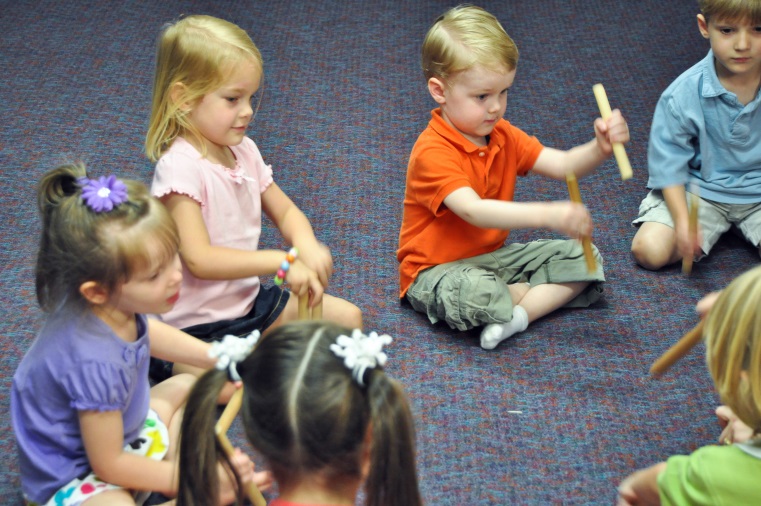Do you know the old jazz standard by George and Ira Gerswin: “I’ve Got Music. I’ve Got Rhythm…Who could ask for anything more?” Well, apparently all that music and rhythm brings even more than a really good dance number by Gene Kelly. New research implies that young children’s rhythm abilities before they can read may eventually help doctors predict future reading disorders.
 An ongoing study by Nina Kraus indicates that a preschooler’s ability to follow a rhythm and keep a steady beat can accurately predict early language skills and reading skills. While this is only the beginning of a five-year study, the team plans to track the participants to determine whether these rhythmic and steady beat abilities (or lack thereof) can predict later reading disorders, even with children as young as newborns.
An ongoing study by Nina Kraus indicates that a preschooler’s ability to follow a rhythm and keep a steady beat can accurately predict early language skills and reading skills. While this is only the beginning of a five-year study, the team plans to track the participants to determine whether these rhythmic and steady beat abilities (or lack thereof) can predict later reading disorders, even with children as young as newborns.
“Detection this early could lead to intervention strategies such as music games to improve at-risk children’s rhythmic perception when their brains are most malleable,” says neurologist Gottfried Schlaug of Harvard Medical School in Boston in a press release.
We already know that early childhood music instruction:
- Improves phonological awareness
- Refines auditory discrimination
- Increases auditory sequencing ability
- Strengthens listening and attention skills
- Enhances speaking skills
- Heightens oral language development
- Enriches vocabulary
Take a peek inside a Kindermusik classroom to see young students reading and playing rhythm patterns:
[youtube]https://www.youtube.com/watch?v=-IEm17m3evI[/youtube]
Learn more about the connections between music and reading at www.Kindermusik.com.
Contributed by Lisa Camino Rowell, a freelance writer in the Atlanta area.

